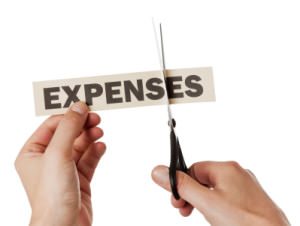Whether money is tight because you’ve lost your job or you just don’t have enough to cover all your cut expenses, you probably could benefit from some advice about how to save money. In addition to traditional ways of saving, there are all sorts of hidden places to cut corners. The tips in this article will give you a good starting place for saving money and improving your financial situation.
Ways To Cut Expenses & Save Money
 One of the biggest drains on most people’s money is food. Since food is a necessity, you can’t really avoid spending money on it. However, if you change some of your habits, you can save more on food than you might expect.
One of the biggest drains on most people’s money is food. Since food is a necessity, you can’t really avoid spending money on it. However, if you change some of your habits, you can save more on food than you might expect.
Most people go to the grocery store when they need food for that evening or, at least, within the next few days. However, you should start thinking more long-term. Stores often put meat on sale when it nears its expiration date, for example. Instead of eschewing these sales because you don’t plan to cook the meat for a while, you should stock up. You can freeze meat for up to six months without risking contamination. Thus, it might be better to buy 8 to 10 packages of meat on sale than to wait until you need the meat to buy it.
Conversely, you could consider giving up meat altogether during lean times. In most areas of the United States, tofu is far cheaper than meat. Learn how to cook tofu and make a variety of recipes with it. You’ll save about 60 percent on your grocery bill if you switch to a tofu-based diet.
In addition to saving on food, you probably need to save on non-necessary expenses. Entertainment expenses are often the first to go when there’s a money crunch; although you need to relax, you don’t need to spend money to do it, and sometimes the money isn’t available.
Rather than cutting books and movies out of your life altogether, consider using the public library more. You can borrow both books and movies for free as long as you bring them back by a specific date. Write the due dates on the calendar as soon as you get home from the library so that you remember to bring materials back on time; it’s counter-productive to try to save money on entertainment if you have to pay late fees.
Automobile expenses are another seemingly necessary and large expense. If you own a car, you have to pay registration, insurance and property taxes on it. You also have to pay for gas at least once a week and possibly more often. However, if you live in a city with good public transportation, you may be able to avoid the majority of these expenses. Sell your vehicle and take public transportation such as buses and subways. Although you have to pay to ride on these vehicles, you won’t be paying extra fees on top of the cost of transport, and public transportation often costs less per week than buying gas.
It may not be easy to cut expenses, especially when you’ve already done everything traditional financial management books suggest. However, if you use a little bit of creativity and foresight, you can find ways to cut expenses further and begin saving money.
